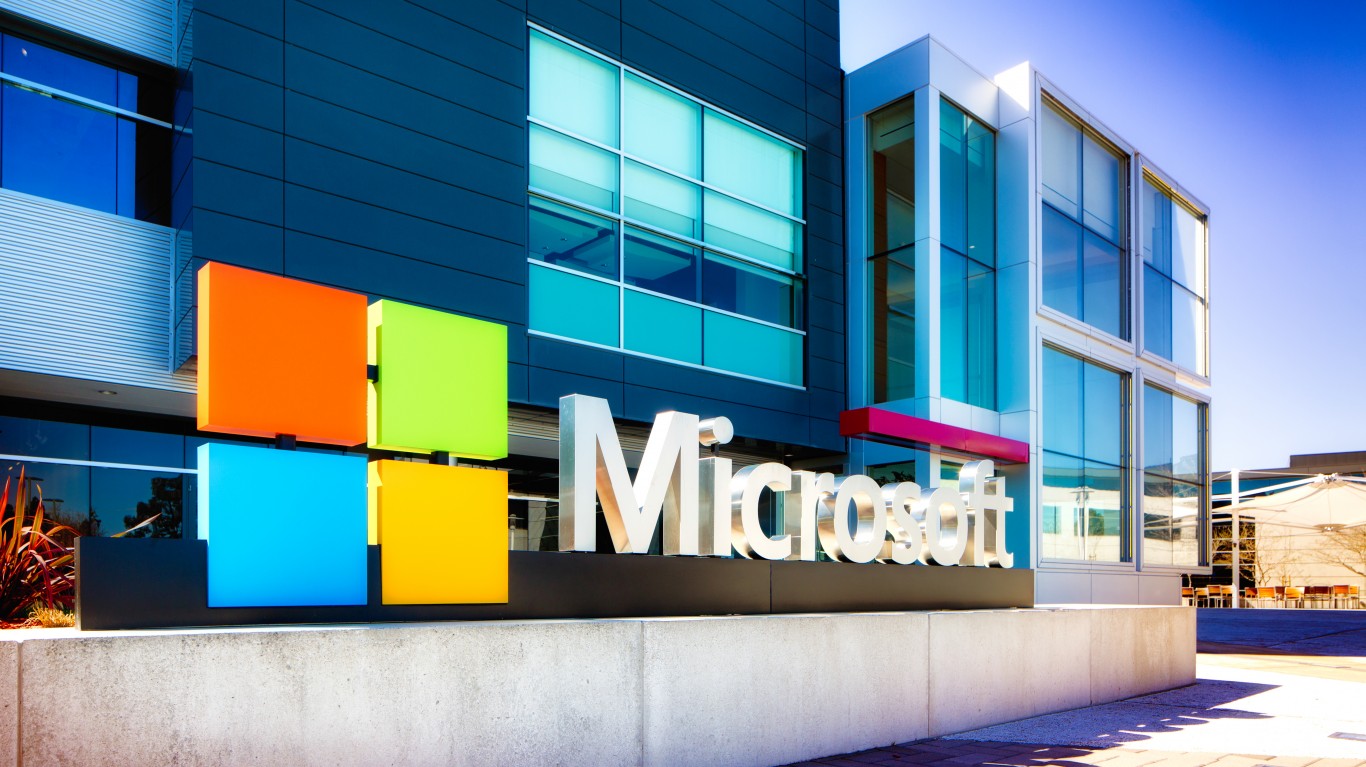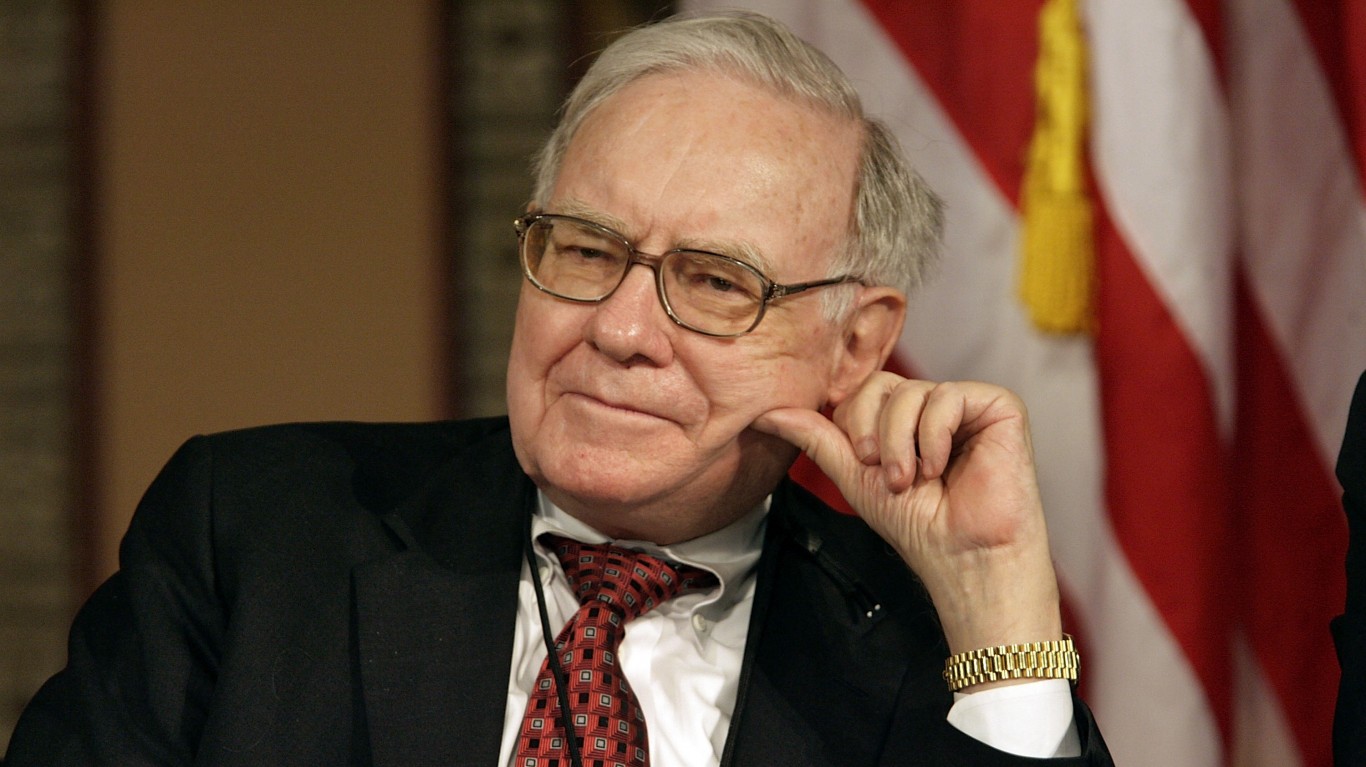
It takes a certain kind of courage to short sell blue chips, such as the Dow Jones industrial average components. Short sellers are betting on these companies to fail, or at least for their share prices to fall handily. Plus, those sellers are responsible for paying the dividends on the stocks they short.
Maybe it is little surprise that only three of the 30 Dow stocks had sizable short interest between December 13 and December 31; that is, more than 50 million shares short. Nine of them, or almost a third, had short interest of more than 30 million shares.
While the bull market is quite long in the tooth — now well more than a decade old — and political and geopolitical concerns continue to grow, the markets are still trading near all-time highs. Investors may wonder then what the short sellers expected from some of the biggest, most well-respected names on Wall Street as the year came to a conclusion.
As of the year-end settlement date, the most recently reported period, short sellers favored Microsoft Corp. (NASDAQ: MSFT) Intel Corp. (NASDAQ: INTC) and Pfizer Inc. (NYSE: PFE) above all other Dow stocks.
Microsoft
> Shares short: more than 62.70 million
> Change from prior period: −1.9%
> Percentage of float: 0.8
Microsoft’s short interest retreated from the prior period’s year-to-date high, but the tech giant found still itself in the top spot on this list. The days to cover figure remained about three as the average daily volume increased somewhat during the period. Short interest has been more than 60 million since the end of October.
Some analysts recommend sticking with old-school tech stocks like Microsoft for 2020. Its share price ended the final two weeks of December more than 1% higher, about the same gain as the S&P 500, despite being in the red early in the period. The shares continued to rise after the settlement date as well.
After ending the past week more than 2% higher, Microsoft stock closed trading most recently at $161.34 a share. That was in a 52-week range of $101.26 (seen about a year ago) to $163.22 (on Friday). The most recent share price is more than 16% higher than six months ago, compared to around a 7% gain for the Dow.
Intel
> Shares short: more than 58.79 million
> Change from prior period: 2.3%
> Percentage of float: 1.3
Intel’s short interest has risen in six of the past seven periods, and the semiconductor giant ended the year in the number two spot on this list. Note that the year-to-date high of more than 63 million shares occurred back in July. At the average daily trading volume on the latest settlement date, it still would take investors more than three days to cover their short bets.
Intel is a top Merrill Lynch stock pick for 2020. Short sellers watched the stock pull back more than 2% but recover and end the two weeks with almost a 3% gain. The share price retreated again after the settlement date, but it is still up more than 21% from six months ago.
Intel was last seen trading at $58.94 a share, not far from the multiyear high of $60.97 reached at the start of the new year and well above the 52-week low of $42.86. The latest share price is around 3% lower than at the beginning of this year, but the Nasdaq is up about 1% year to date.
Pfizer
> Shares short: around 57.14 million
> Change from prior period: −2.9%
> Percentage of float: 1.0
While the latest number of shares short is nowhere near the 97 million year-to-date high seen last February, the retreat in the latter half of December allowed this pharmaceutical giant slip to the third spot on the most shorted Dow stock list. It would take investors just a little more than three days to cover their short interest.
The maker of Lipitor, Viagra and Xanax appeared to be poised to be one of the Dogs of the Dow for 2020 and the year wound down. Its shares ended the final two weeks of the year only fractionally higher, though it had been up about 1.5% earlier in the period. The Nasdaq was up less than 2% in that time.
Shares closed most recently at $39.49 apiece, which is up more than 1% in the past week. Pfizer’s 52-week low of $33.97 was seen in last August, and the 52-week high of $44.56 was reached back in July. The stock now trades about 8% lower than it did six months ago.
And the Rest
Rounding out the top five most shorted Dow stocks on the most recent settlement date were Apple Inc. (NASDAQ: AAPL) and Exxon Mobil Corp. (NYSE: XOM). The former saw a more than 10% drop in its short interest, as the stock ended the year with a nearly 86% gain, the best Dow performer of the year. The oil supermajor saw a marginal gain in its shares short in those two weeks, just enough to keep it ahead of Verizon on this list, and its share price increased by less than 6% in that time. Exxon also looked poised to be among the Dogs of the Dow for 2020.
Also notice on the following list of short interest changes in Dow stocks as of December 31 the notable rise at retailers Home Depot (disappointing 2020 outlook) and Walgreens (worst Dow performer), as well as Boeing (ongoing 737 Max problems).
| Dow Stock | Short (millions) | Change | % Float |
|---|---|---|---|
| Microsoft | 62.71 | −1.92% | 0.83% |
| Intel | 58.79 | 2.33% | 1.33% |
| Pfizer | 57.14 | −2.90% | 1.03% |
| Apple | 45.51 | −10.31% | 1.04% |
| Exxon | 38.81 | 1.25% | 0.92% |
| Verizon | 38.66 | 6.21% | 0.94% |
| Coca-Cola | 37.47 | 9.09% | 0.88% |
| Cisco | 36.23 | 8.80% | 0.86% |
| Visa | 31.33 | −2.23% | 1.83% |
| JPMorgan | 28.53 | −7.22% | 0.92% |
| Merck | 25.15 | 3.17% | 0.99% |
| Walgreens | 22.00 | 13.22% | 2.98% |
| Procter & Gamble | 21.86 | −4.65% | 0.88% |
| Chevron | 21.51 | 6.04% | 1.14% |
| Johnson & Johnson | 20.50 | −1.75% | 0.78% |
| Walmart | 17.27 | 0.89% | 1.24% |
| Disney | 17.05 | −0.14% | 0.95% |
| IBM | 16.17 | 6.95% | 1.83% |
| Dow | 12.61 | 8.41% | 1.70% |
| UnitedHealth | 10.56 | 1.81% | 1.12% |
| Home Depot | 10.35 | 32.23% | 0.95% |
| 3M | 9.95 | −0.08% | 1.73% |
| Nike | 9.75 | 3.65% | 0.81% |
| Caterpillar | 8.05 | −8.34% | 1.46% |
| McDonald’s | 7.53 | 6.55% | 1.00% |
| United Technologies | 7.49 | 2.50% | 0.87% |
| American Express | 7.45 | −0.31% | 0.91% |
| Boeing | 6.34 | 19.89% | 1.13% |
| Goldman Sachs | 6.06 | −8.68% | 1.83% |
| Travelers | 4.08 | −7.06% | 1.58% |
Credit Card Companies Are Doing Something Nuts
Credit card companies are at war. The biggest issuers are handing out free rewards and benefits to win the best customers.
It’s possible to find cards paying unlimited 1.5%, 2%, and even more today. That’s free money for qualified borrowers, and the type of thing that would be crazy to pass up. Those rewards can add up to thousands of dollars every year in free money, and include other benefits as well.
We’ve assembled some of the best credit cards for users today. Don’t miss these offers because they won’t be this good forever.
Flywheel Publishing has partnered with CardRatings for our coverage of credit card products. Flywheel Publishing and CardRatings may receive a commission from card issuers.
Thank you for reading! Have some feedback for us?
Contact the 24/7 Wall St. editorial team.
 24/7 Wall St.
24/7 Wall St.


